Table of Content
Do you want to learn electronics? If yes, then you are on the right place.
Here, you will get information about the list of top 10 best electronics books for beginners.
Introduction
In a world driven by technology, understanding the fundamentals of electronics is not just a valuable skill but a necessity. If you’re new to this field, you might be searching for the best resources to kickstart your journey. Look no further, as we’re here to guide you through the world of basic electronics books for beginners.
It’s a common misconception that electronics is a complex domain reserved for experts. We’re here to debunk that myth and show you that anyone can grasp the principles of electronics. Whether you’re a student, a hobbyist, or someone with a curious mind, there’s a perfect best book to learn electronics for beginners waiting for you.
The electronics industry is booming, offering a myriad of opportunities for those with the right knowledge. From building your own electronic gadgets to pursuing a career in electronics, the options are limitless.
In this article, we’ve curated a list of the best electronics books for beginners. Each of these books is tailored to make the journey of understanding electronics accessible and enjoyable. We’re confident that by the end of this article, you’ll find the ideal electronics for beginners book that will not only teach you the basics but also ignite your passion for this exciting field. Let’s embark on this electrifying adventure into the world of electronics.
Here’s the updated table with the addition of publisher and year information:
| No. | Book Title | Author | Publisher | Year |
|---|---|---|---|---|
| 1. | Getting Started in Electronics | Forrest M. Mims III | Master Publishing | 1983 |
| 2. | The Art of Electronics 3rd Edition | Paul Horowitz, Winfield Hill | Cambridge University Press | 2015 |
| 3. | Practical Electronics for Inventors, 4th Edition | Paul Scherz, Simon Monk | McGraw-Hill Education | 2016 |
| 4. | Understanding Basic Electronics- 2nd Edition | ARRL | ARRL | 2005 |
| 5. | Beginner’s Guide to Reading Schematics, 3rd Edition | Stan Gibilisco | McGraw-Hill Education | 2013 |
| 6. | The Basic Soldering Guide Handbook | Alan Winstanley | No Starch Press | 2012 |
| 7. | Electronics All-in-One For Dummies | Doug Lowe | For Dummies | 2017 |
| 8. | Grob’s Basic Electronics | Mitchel E. Schultz | McGraw-Hill Education | 2015 |
| 9. | Electronics for Kids | Øyvind Nydal Dahl | No Starch Press | 2016 |
| 10. | How to Diagnose and Fix Everything Electronic, 2nd Ed. | Michael Geier | McGraw-Hill Education | 2015 |
Here is the list of basic electronics books for beginners:
1. Getting Started in Electronics
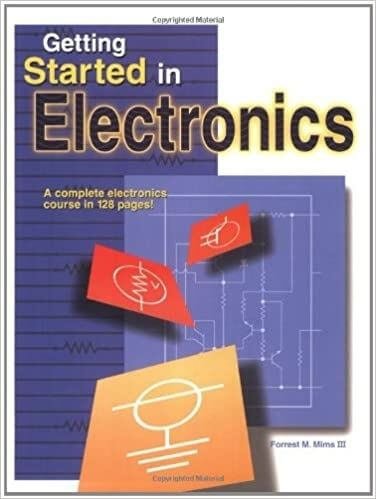
This is the new 2020 spiral-bound edition with a complete electronics course in 128 pages.
After reading this Getting Started in Electronics book you will learn about:
- Basic Electronics
- Analog and digital components
- Explanation about how they work
- Various applications
- Circuit assembly tips
- 100 electronic circuits
- projects you can build and test
- Many more
2. The Art of Electronics 3rd Edition
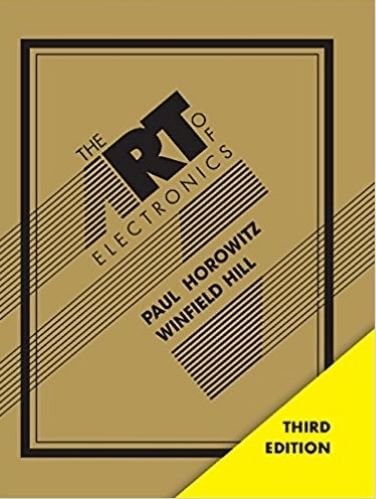
The Art of electronic 3rd edition, is widely accepted for designing circuits by engineers. This electronics book covers many topics, like oscilloscope diagrams, graphs with accurate data, and working on a circuit when you deal with an interesting project.
Also, The language used in this book is very simple. It includes:
- 90 oscilloscope diagrams
- 80 tables
- list of 1650 components
- 1470 pages
3. Practical Electronics for Inventors, 4th Edition
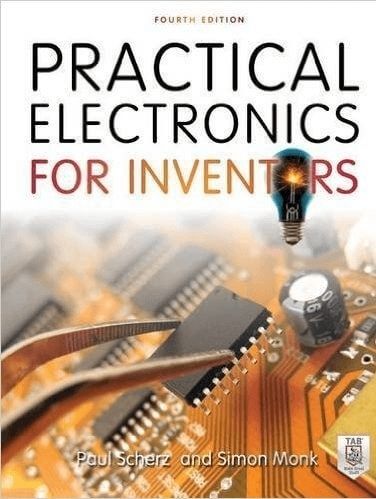
Practical Electronics for Inventors, 4th Edition book is perfect for electrical engineering students who have a strong wish to boost their knowledge in electronics and gain the skills necessary to develop their own fun gadgets.
This book is written by experienced engineers and professionals to provide the necessary information with schematics and illustrations. It gives you an idea about the design and builds electronic devices and how to select the components.
It also features instructions on voltage regulators, programming logic, operational amplifiers, and many more.
Practical Electronics for Inventors, 4th Edition book provides detailed information that includes:
- Active components
- Passive components
- Microcontrollers
- Logic gates
- LCD display
- digital electronics
- DC motors and stepper motors
- Speakers, Microphones, and audio amplifiers.
4. Understanding Basic Electronics- 2nd Edition
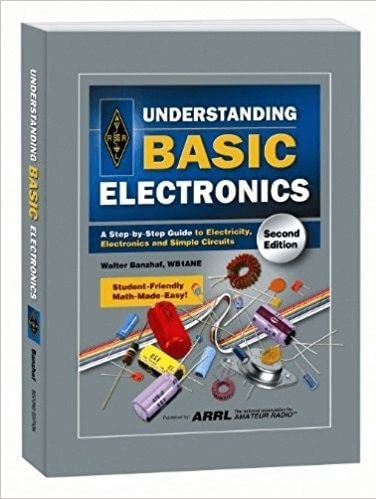
Understanding Basic Electronics, 2nd edition book is the exciting world of electricity and electronics. This book is user-friendly written, easy-to-understand for beginners and nontechnical readers will also understand easily. Even if you are already interested in basic electronics, you will enjoy the small module format of each concept.
Also, Students with basic math skills will enjoy this book. All you need is an inexpensive calculator.
Use this book Understanding Basic Electronics- 2nd Edition before studying more complicated tutorials.
5. Beginner’s Guide to Reading Schematics, 3rd Edition
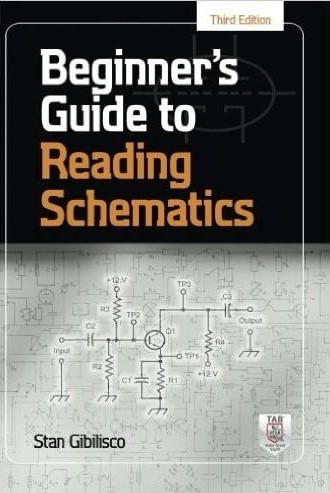
Beginner’s Guide to Reading Schematics, Third Edition book contains demo circuits which you can build, hands-on, illustrated guide explains how to understand and create high-precision electronics diagrams. Also, decipher element ratings, how to identify parts and connections etc.
In this book detailed coverage of:
- pictorial diagrams, Schematic, and block
- capacitors and Resistors
- Inductors and transformers
- Conductors, Switches, and cables
- Logic gates, Diodes, and transistors
- Cells and batteries
- Breadboards and wire wrapping
- Electronics troubleshooting
- Electron tubes
- Voltage dividers and reducers
- Resistor color codes
6. The Basic Soldering Guide Handbook
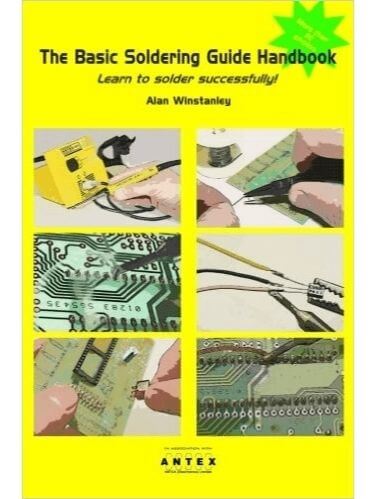
The Basic Soldering Guide Handbook is the perfect book for beginners, trainers, and hobbyists to master their skills in soldering electronics. Soldering book is useful for individuals who love to make homemade DIY projects like quadcopters, remote-controlled cars, guitars, and robotic arms.
Basic soldering books include the following topics:
- How to solder electronic components
- Steps to desolder the circuit board or electronic components.
- Methods of testing the electronic device.
- What are the precautions to be taken before starting soldering.
- How to select appropriate soldering equipment like iron and solder.
7. Electronics All-in-One For Dummies

Electronics for dummies book is an ultimate guide that helps you to learn next stage. It is a collection of 8 other books that can’t be found anywhere. With the help of this book you to create and design many projects using Arduino and Raspberry Pi kits.
This Electronics for dummies book helps beginners to grasp certain topics like circuits, schematics, and other sources with detailed information about how to design your own circuit, working of hardware components, neat sketches, breadboard, and schematics.
Here, are some contents that you will learn when you read this wonderful book:
- How to safely solder the electronic components
- How to repair the existing electronic devices
- Make your own electronic projects
- Able to tackle digital, analog, and car electronic modules
- Basics of electronics with an array of numerous concepts
- How to make your own schematics and breadboards
- Become an expert in circuit designing
8. Grob’s Basic Electronics
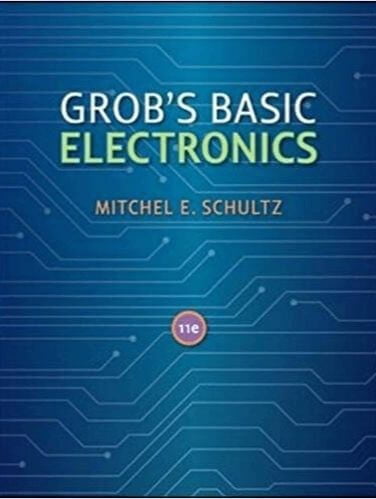
Grob’s Basic Electronics book is the ultimate guide for beginners and engineers to satisfy their current technology needs. This book covers the fundamentals of electronics, electricity, the importance of testing and troubleshooting skills. Also, teaches you carefully through a practical approach with proper examples, illustrations, and diagrams.
The Grob’s basic electronics book includes below topics:
- It will help you to draw schematic circuit diagrams
- Help you to tackle for the time delay and measurement circuits
- Help you learn electrical theorems and programming concepts
- How to interface sensors with other peripheral devices
- How to embed a program with the hardware devices
- Helps you repair your own gadgets like watches, smartphones, and iPods
- How to set up the software and power up the electronic circuits
9. Electronics for Kids
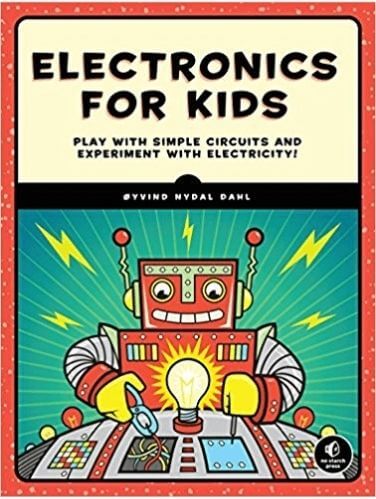
Electronics for kids book contains hand projects for kids. This book helps the kids to learn about how current, and voltage circuits work.
Here are some topics that the electronics for kids book includes:
- how to create a musical instrument that makes sci-fi sounds
- Helps to build an alarm clock triggered by the sunrise
- How to turn a circuit into a touch sensor using your finger as a resistor
- Solder a blinking LED circuit with capacitors, relays, and resistors.
Kids may think and ask questions like why the lights in a house turn on when you flip a switch, how a remote-controlled car moves etc.
This book also helps you learn about digital electronics, like logic gates and memory circuits, as well as how to make a secret code checker and an electronic coin flipper. It has clear explanations and an assortment of hands-on projects.
Click here to learn about Which field is better: IoT or Embedded in today’s industry?
10. How to Diagnose and Fix Everything Electronic, 2nd Edition
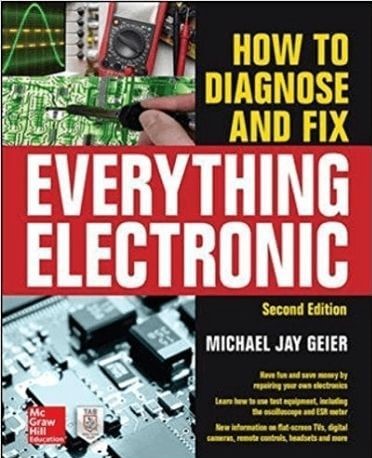
How to Diagnose and Fix Everything Electronic, Second Edition this book will help you to repair your gadget/device. If your gadget is damaged due to internal circuitry, Instead of buying a new gadget that is too expensive you can repair and extend the life of digital electronic devices, just by reading this amazing book.
This book includes electronic projects that are explained in step-by-step procedures. It contains neat sketches and circuit diagrams as well.
This book explains the following:
- How to choose the proper tools and set up your workbench
- The workings of electrical components and why they fail, analysis and work
- Helps to perform preliminary diagnoses based on symptoms
- Use different test equipment, including digital multimeters, ESR meters, frequency
- counters, and oscilloscopes
- Interpret block, schematic, and pictorial diagrams
- Disassemble products and identify sections
- Analyze circuits, locate faults, and replace dead parts
- Re-establish connections and reassemble devices
Conclusion
Start your journey into the interesting world of electronics with the help of these top 10 best books for beginners. Whether you just like tinkering around or dream of becoming an engineer, these books will give you important information and advice to begin your electronics journey.
Frequently Asked Questions
-
What are the essential components of a beginner’s electronics toolkit?
A beginner’s electronics toolkit should include components such as resistors, capacitors, LEDs, breadboards, jumper wires, and a multimeter for testing circuits.
-
How can I improve my soldering skills as a beginner?
Practice soldering on a prototyping board or PCB kits, start with simple components, and watch online tutorials to learn proper soldering techniques.
-
What programming languages are commonly used in electronics projects?
Python, C/C++, and Arduino’s simplified language are commonly used in electronics projects for programming microcontrollers and interfacing with hardware.
-
How can I troubleshoot common issues in electronic circuits?
Use systematic troubleshooting methods such as checking power supply connections, testing individual components, and using an oscilloscope for signal analysis.
-
What are some beginner-friendly electronic project ideas to practice?
LED blinkers, temperature sensors, light intensity meters, and simple digital clocks are excellent beginner projects to apply theoretical knowledge and gain practical experience.
You May Interested In:
Which field is better: IoT or Embedded in today’s industry?
What are the differences between Arduino and Raspberry Pi?
What is a Semiconductor? Basic of Electronics
How to Connect Arduino Uno to Android via Bluetooth